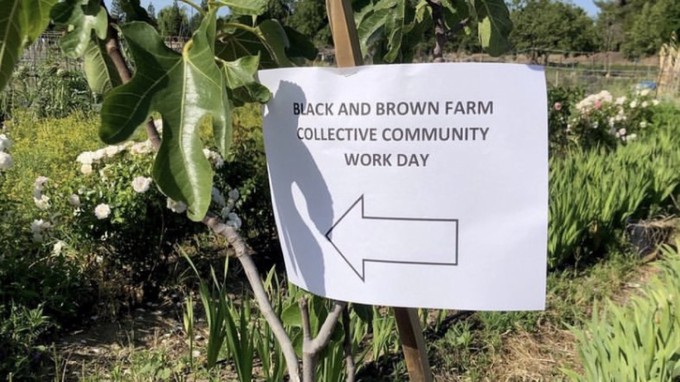
Sacramento Perennial Plant Club supports school, nonprofit and community programs

The Black & Brown Farm Collective was among the 2024 recipients of the Saul Wiseman Grants, presented by the Sacramento Perennial Plant Club. Deadline for the 2025 grants is Jan. 15. Courtesy Black + Brown Farm Collective via Instagram
Seed money: A phrase with a double meaning when it comes to getting a community or school garden project off the ground. And seed money can be found locally, thanks to a wonderful program of the Sacramento Perennial Plant Club.
The group is now accepting applications for its annual Saul Wiseman Grants, named in honor of a past president of the club. The organization's excellent plant sales help fund the grants program.
Application deadline is Jan. 15, 2025. Find the forms, lists of past winners and full details at https://sacplants.org/grants.
"Since 2015, our Saul Wiseman Grants have aided schools, nonprofit and community groups who serve Sacramento County’s diverse population through gardening and horticultural activities," the group's website notes.
"Many of the recipients are talented educators dedicated to making all manner of gardening experiences available in our schools and public places. Others lead community gardens or create environmentally-friendly places of beauty in our neighborhoods. Funds have purchased many things, including educational materials, plants and seeds, garden tools, and irrigation supplies."
The 2024 grant winners, by way of example, were:
-- Black & Brown Farm Collective
-- Hmong Youth and Parents United
-- Land Park Community Association
-- Sam Brannan Middle School
-- Soil Born Farms
-- Toby Johnson Middle School
-- Washington Elementary School
Non-profit groups, community groups and schools within the City of West Sacramento and County of Sacramento are eligible and encouraged to apply, the club says. Priority will be given to grant applications that support diversity, equity and inclusion.
If applicable, projects must have a source of water for irrigation. Applicants may request up to $1,200. Smaller projects are encouraged; partial grants may be awarded. The 2024 SPPC grant recipients are not eligible for 2025 grant awards.
Awards will be posted Feb. 15 on the SPPC website.
For information or questions not covered on the website, email grants.sppc@gmail.com.
Comments
0 comments have been posted.Sacramento Digs Gardening to your inbox.
Food in My Back Yard Series
May 6: Maintain soil moisture with mulch for garden success
April 29: What's (already) wrong with my tomato plants?
April 22: Should you stock up on fertilizer? (Yes!)
April 15: Grow culinary herbs in containers
April 8: When to plant summer vegetables
April 1: Don't be fooled by these garden myths
March 25: Fertilizer tips: How to 'feed' your vegetables for healthy growth
March 18: Time to give vegetable seedlings some more space
March 11: Ways to win the fight against weeds
March 4: Potatoes from the garden
Feb. 25: Plant a fruit tree now -- for later
Feb. 18: How to squeeze more food into less space
Feb. 11: When to plant? Consider staggering your transplants
Feb. 4: Starting in seed starting
Sites We Like
Garden Checklist for week of May 4
Enjoy this spring weather – and get gardening!
* Plant, plant, plant! It’s prime planting season in the Sacramento area. Time to set out those tomato transplants along with peppers and eggplants. Pinch off any flowers on new transplants to make them concentrate on establishing roots instead of setting premature fruit.
* Direct-seed melons, cucumbers, summer squash, corn, radishes, pumpkins and annual herbs such as basil.
* Harvest cabbage, lettuce, peas and green onions.
* In the flower garden, direct-seed sunflowers, cosmos, salvia, zinnias, marigolds, celosia and asters. (You also can transplant seedlings for many of the same flowers.)
* Plant dahlia tubers. Other perennials to set out include verbena, coreopsis, coneflower and astilbe.
* Transplant petunias, marigolds and perennial flowers such as astilbe, columbine, coneflowers, coreopsis, dahlias, rudbeckia and verbena.
* Keep an eye out for slugs, snails, earwigs and aphids that want to dine on tender new growth.
* Feed summer bloomers with a balanced fertilizer.
* For continued bloom, cut off spent flowers on roses as well as other flowering plants.
* Add mulch to the garden to maintain moisture. Mulch also cuts down on weeds. But don’t let it mound around the stems or trunks of trees or shrubs. Leave about a 6-inch to 1-foot circle to avoid crown rot or other problems.